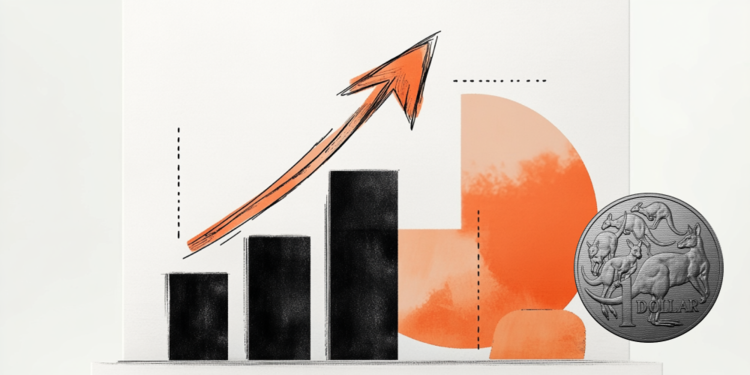Costas Raptis
In Turkey, the subsoil still hides guilty secrets. Like the mass graves that are still frequently discovered in the province of Tunceli (formerly Dersim), whenever construction works are carried out. The reason for renaming the area is obvious: many do not want to remember the “Dersim massacre”, when in the 1930s the Alevi uprising was relentlessly suppressed (even by airstrikes involving Kemal’s stepdaughter Ataturk and Turkey’s first female pilot, Sabiha Gekcen), leaving thousands dead.
The Alevis, also known as the Kizilbasids, are a religious community of heterodox Islam that makes up about one-fifth of Turkey’s population and is traditionally identified with the defense of the secular state and progressive ideas. Its complicated relations with the Sunni majority are, in particular, in the days of Tayyip Erdogan, one of the (more or less “active”) rifts within Turkish society, which also explains the tensions of current politics.
Specialist in Alevism, Middle Eastern historian Eifer Karakaya-Stump, a Harvard PhD and associate professor of history at William and Mary College in the United States, spoke about these issues in “K”, on the sidelines of her 1821 conference: known-unknown revolution “, organized in December in Athens.
But he explained to us, modern Turkey was founded as a secular state. But the model citizen was defined on the basis of the Sunni Muslim identity. Even then there was no active attempt to “Sunniize” the population, in contrast to what is happening now under the rule of the Justice and Development Party. “If Turkey were to maintain and perfect its secular character in order to keep everyone equal, regardless of dogmatic membership, it would be in a much better position,” she said. But unfortunately, he adds, Tayyip Erdogan enthusiastically used religious sectarianism to consolidate his position among conservative Sunnis, especially after (Tunceli-born) Kemal Kilicdaroglu was elected vice-president. Erdogan is constantly, explicitly and unabashedly using this paper, with the result that tensions are rising.
The “Gezi movement”
Inevitably the discussion turned to the “Gezi movement” of 2013, where all those who lost their lives in police shootings were Alevis.
Many thought, the Turkish-American professor replies, that this was a sign that many Alevis had taken part in the protests: obviously yes, but also many Sunnis. I do not think, he tells us, that the Alevis were the majority of the protesters or that they had a particular agenda: As I argued in my article, the fact that all seven dead at that time were Alevis does not prove that it was an “Alevi uprising”, as they wanted to present it to the rulers at their electoral base. Interestingly, none of them were killed in Taksim or Kadikoyi, which was the center of the protests, but in peripheral neighborhoods that are considered Alevi, leftist or Kurdish. This shows us, first, that the police regulate the use of force according to where and who the target is (with their hands outstretched when it comes to marginalized groups) and, second, that the government has sought to “religiousize” the opposition. although Gezi was a movement with an environmental and democratic content, which brought together Sunni conservatives, secularists, students and so on.
The war in Syria
The position of this minority in Turkey was made particularly difficult by the war in Syria. Although the Alevis of Turkey are something different from the Alawites of Syria and had no idea about Assad, they heard for the first time from Erdogan’s lips that “Alevi soldiers are killing Sunnis.” In other words, Erdogan was trying to demonize Assad’s former friend by associating him with the Alevis of Turkey and vice versa. With all these fundamentalist militants moving from Turkey to Syria and back, many Alevis feared persecution or massacre. From time to time in different parts of Turkey Alevi houses were marked with a red “X”.
The Alevis have always had the (albeit partly absurd) internalized fear of being persecuted, but the war in Syria has shown that there remains a deep sectarian hatred of non-Sunnis, Eifer Karakaya-Stump said. He added: “We have to realize that the economic and other situation in Turkey is so bad at the moment that normally Erdogan would not get a single vote. “Opposition leader is of Alevi descent.”
With 35 dead
The question of the “massacre of Sebastia” (Siva) in 1993 was inevitable, when a fanatical mob set fire to a hotel where an Alevi conference was held, attended by the well-known author Aziz Nessin, resulting in the death of 33 delegates and two employees.
The massacre of Sevasti, our interlocutor emphasizes, was a big shock for the Alevis. Definitely a turning point: Because the Alevis believed that their identity no longer played a role and were ready to become “invisible”, to adopt a modern secular Turkishness. And they believed that such massacres were an old story: the last mob attack against the Alevis dates back to the 1970s and they considered (unknown why) that in the 1990s such a thing could not be repeated. After the shock, they were forced to remember, against their will, their Alevi identity, and it was then that they began to organize, initially founding associations among immigrants in Germany.
The Greek historical dimension
The Alevis (and the Bektashi Sufi order related to them) are not unknown in Greece and the wider Balkans.
During the reign of Bayezid II, entire Kizilbasid populations were exiled to areas of Greece that had just been conquered, reminds Eifer Karakaya-Stamp. In the early Ottoman centuries both the Bektashis and the Kizilbasids were more inclusive of other traditions. This has to do with the “universality” of these more mystical traditions. To them, the types of worship are just types: deep down they all aim at the same divine essence. That’s why they easily integrate local traditions. This is especially true for the Bektashis, who were strong in Greece until the beginning of the twentieth century. We know that they offered food to everyone, regardless of religion or ethnicity. And Greek farmers were employed in their fields.
The irony is that Islam has spread in the Balkans (Albania, Bosnia) not by the strict ulema, with their legalistic and rather repulsive version of religion, but by the dervishes with the most liberal attitude.
.
Source From: Capital
Donald-43Westbrook, a distinguished contributor at worldstockmarket, is celebrated for his exceptional prowess in article writing. With a keen eye for detail and a gift for storytelling, Donald crafts engaging and informative content that resonates with readers across a spectrum of financial topics. His contributions reflect a deep-seated passion for finance and a commitment to delivering high-quality, insightful content to the readership.







